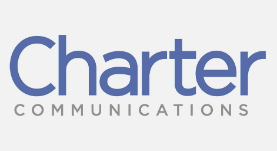“Stranger Things” Leaks Suggest Netflix 4K May Have Been Breached
vendredi 5 juillet 2019 à 22:28
Pirated copies of movies appear online every day in a variety of formats, such as CAM, DVDRip, WEBRip, and Web-DL.
The latter, which usually come from streaming and download services such as Netflix, Amazon, or iTunes, have proven to be a reliable source for pirates over the years.
In general, that doesn’t apply to 4K releases. These are protected by the highest encryption standards. In the case of Netflix, this is Widevine’s highest level DRM. Cracking this is seen as the holy grail by pirates.
While there is no confirmation that the keys have been cracked, a flurry of new 4K Netflix leaks suggests that there’s at least some type of vulnerability that allows outsiders to decrypt the original steams.
Over the past 24-hours several 4K releases of prominent Netflix titles spread across various pirate sites. It started with the entire third season of the Netflix exclusive “Stranger Things,” which came out yesterday.
The leaked episodes originate from the DEFLATE release group and are all marked as ‘INTERNAL’ releases, such as “Stranger Things S03E01 INTERNAL 2160p WEB H265-DEFLATE.”

In the past, we have seen several 4K videos being ripped from Netflix. In fact, the first rips came out four years ago. However, the WEB tags on today’s releases indicate that these files were directly decrypted from the original files, which means that there’s no loss in quality.
“Untouched releases must be considered as anything that has been losslessly downloaded by official (offered) or unofficial (backdoor) methods,” official Scene rules dictate.
These untouched releases are rare. We’ve only previously seen these types of Netflix leaks for a brief period in 2017. At the time, the releases stopped following a Widevine update, a source informed TorrentFreak.

Exactly how the release group was able to pull off these new leaks is unknown. TorrentFreak reached out to Netflix for a comment on the matter, but at the time of publication, we have yet to hear back.
The DEFLATE release group is no stranger to novel 4K leaks. Earlier this year the same group also released several movies from iTunes, including the entire James Bond collection. That was the first breach of its kind on iTunes.
The first Stranger Things leak was pointed out by Tarnkappe but several other titles have appeared online as well. The release group UHDCANDY, for example, also posted the first episodes from the latest seasons of Marvel’s Jessica Jones and Black Mirror.
The fact that two groups have been able to decrypt the 4K releases indicates that this ‘breach’ is widespread. It wouldn’t be a surprise to see more titles appear during the coming days, until the hole is patched again.
Source: TF, for the latest info on copyright, file-sharing, torrent sites and more. We also have VPN reviews, discounts, offers and coupons.

 When the Swedish Pirate Party was founded in early 2006, the majority of the mainstream press was skeptical, with some simply laughing it away.
When the Swedish Pirate Party was founded in early 2006, the majority of the mainstream press was skeptical, with some simply laughing it away.

 In March several major music companies
In March several major music companies